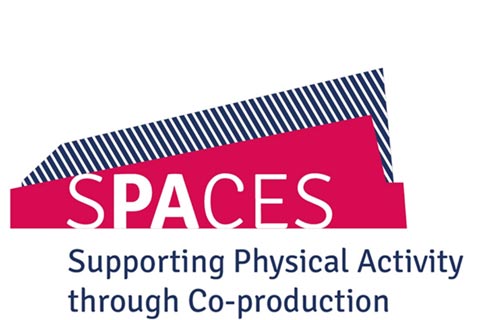Institute for Health and Care Improvement
Promoting and preserving
health and wellbeing
Research theme.
The work of this theme draws on a wide range of academic skills and disciplines.
Fundamental scientists investigate molecular and cellular mechanisms that underpin the development, diagnosis and treatment of disease. Applied researchers develop, evaluate and apply interventions to improve health and wellbeing. Together, our innovative work seeks to tackle the multiple issues facing health and social care in the UK today.
Our current projects include:
- SPACES: Supporting physical activity through co-production in people with severe mental illness
- Menopause and health
- Impact for Developmental Coordination Disorder (DCD) study
- CytoHealth – A study of the inflammatory response to exercise
- Patient-Based Disease Modelling using Pancreatic Cancer Organoids
- Natural Health Service for North Yorkshire
- York's Mental Health: The Past, Present and Future of The Retreat
SPACES: Supporting physical activity through co-production in people with severe mental illness

People with severe mental ill health (SMI) die on average 15-20 years prematurely, with over 70% of deaths attributed to preventable physical health conditions. Being physically active can reduce the risk of cardiovascular disease, diabetes and metabolic syndrome and improve mental wellbeing.
People with SMI report engaging in lower levels of physical activity and higher levels of sedentary behaviour than the general population and experience several unique barriers to engaging in physical activity. These barriers include cost, availability, lack of social support and low motivation among several others.
The SPACES research project - Supporting Physical Activity through Co-production in people with Severe Mental Illness - aims to address this issue by developing and evaluating an intervention to increase physical activity among people with SMI.
SPACES is an ongoing 6-year multi-site programme of research funded by the NIHR with co-production at its core. People with SMI have collaborated with the research team at all stages, from developing the research question all the way through to steering the design of the SPACES intervention.
For further information read this On Medicine blog post or contact Professor Garry Tew.
Menopause and health

The menopause represents a significant transitional event in women's lives.
The menopause transition (for example, perimenopause and post-menopause) can impact physical, psychological, and social health, and can cause a variety of symptoms that range from mild to debilitating, which can persist for many years.
Despite the impact of menopause on so many women's lives, this is a largely understudied area. We are conducting several projects to address this research gap and provide more informed guidance for women.
Menopause and Physical Activity
The hormonal changes that occur during the menopause transition can place women at a higher risk of developing cardiovascular disease. We are researching how promoting physical activity to women during the menopause transition may help reduce their risk of disease, alongside improving symptom management and quality of life. We are also researching barriers to physical activity in the menopausal population and using behaviour change theories to develop recommendations for physical activity interventions.
Working Women and the Menopause
Women are living longer and retiring later, meaning increasing numbers of women are employed during the menopause. The symptoms women experience can negatively impact their capacity to work, causing some women to leave work completely. We are conducting research exploring how the workplace environment may impact symptom severity. This can help towards developing more support for women during the menopause whilst they are at work.
For further information contact Dr Amie Woodward or Dr Sophie Carter.
Impact for Developmental Coordination Disorder (DCD) study

Learning to walk, talk, eat with utensils, run and play are important skills we acquire during childhood. Unfortunately, for some children, they are not always learnt with ease. When a child does experience significant difficulty which impacts the acquisition of many movement skills and persists over an extended period of time, they are often referred to as having motor planning difficulties, motor dyspraxia, and sometimes a condition medically diagnosed as Developmental Coordination Disorder (DCD).
In 2020, an Australian research group carried out one of the largest surveys conducted in the world to identify the challenges experienced by children with DCD and their families. The responses revealed that families experience significant challenges overall and more so for obtaining a diagnosis for their child's movement problems and thereafter receiving support and recognition. Responses from the families also identified the significant impact that DCD has in daily life including the social and emotional aspects of a child life.
However, we know very little about the challenges and magnitude of the problems experienced by families having children with DCD in the UK. Following on the Australian study there was a clear need for this survey to be replicated in the UK. Led by Dr Charikleia Sinani, UK researchers and allied health professionals, together in collaboration with Australian researchers in conjunction with DCD UK this project aims were two-fold: to understand the scale and breadth of issues experienced in DCD, and to identify and prioritise the areas in which children with DCD and their families require support.
Find out more on the Dyspraxia Foundation website: Impact DCD Study.
You can also learn more on the Impact DCD survey page.
CytoHealth - a study of the inflammatory response to exercise
This project will examine changes in the expression of 26 cytokines and chemokines after a maximal exercise test in healthy volunteers. This information will be used understand the ‘normal response’ and to design further research to examine how it compares to patients undergoing major abdominal surgery, who have underlying pathology, and if these changes relate to patient outcomes.
The project is funded by an Elsie May Sykes Research Award. The lead site and sponsor is York and Scarborough Teaching Hospitals NHS Foundation Trust. The study assessment sessions will be conducted at York St John University and blood samples will be analysed at the University of York. The research team at York St John University includes Professor Garry Tew, Dr Sophie Carter, and Dr Adam Odell.
Patient-based Disease Modelling using Pancreatic Cancer Organoids
Pancreatic cancer is a complex disease that has the worst prognosis of all the main cancer types in the UK, with only 8% of patients currently surviving 5 years after diagnosis. This is in part due to late-stage presentation, but also because the cancers are resistant to standard chemotherapy treatments. These factors mean that research into improved detection and treatment of pancreatic cancers is of particular importance.
Our project will build a clinically-relevant research resource that will form the basis of future investigations into novel and effective pancreatic cancer treatment. Donated tissue from pancreatic cancer patients will be collected immediately after surgery, and treated to generate organoids – complex cellular models grown inside a laboratory that accurately represent the patient’s disease characteristics. These organoids will be preserved as a living biobank that will display a broad range of pancreatic cancer characteristics, and can be used for investigating how to detect the cancer cells, and methods of improving the efficacy of chemotherapy.
Cellular models commonly used in translational research are unable to recapitulate the complexity of interactions between tumours and their microenvironment. These interactions have a profound influence on treatment response, the development of resistance over time, and ultimately, survival of patients. Hence there is an urgent need to establish and use improved models of primary cancer in laboratory investigations.
Our pancreatic cancer biobank will enable us to recruit a team of talented researchers dedicated to uncovering exploitable vulnerabilities within the entire tumour microenvironment, to understand how tumours adapt to overcome first line treatment, and translate these findings into the clinic.
Natural Health Service for North Yorkshire
This new green social prescribing programme within North Yorkshire’s natural landscapes aims to help people live healthier, more active, and more connected lives. Through nature-based activities, the aim is to connect people with nature to enhance physical and mental health, reduce social isolation, increase social and economic activity, and create healthier, more active communities across the region. It will also provide training and resources for professionals across the health, social care, and community sectors, including GPs, social prescribers, job advisers and probation services.
The Natural Health Service will be delivered by a partnership, led the North York Moors Trust, bringing together the North York Moors and Yorkshire Dales National Park Authorities, and the Howardian Hills and Nidderdale National Landscapes, via a 10 week targeted programme for people with mild-to-moderate mental health needs, physical health challenges, life transitions, or social isolation who are referred by GPs, social prescribers, link workers, and voluntary sector organisations.
York St John University is evaluating the intervention to measure its impact on participants and future sustainability.
York's Mental Health: The Past, Present and Future of The Retreat
The Retreat opened in York in 1796 and was pioneering in the history of mental healthcare, advocating the humane and compassionate treatment of patients at a time when restraint and invasive therapies were standard. Its revolutionary approach was widely influential and helped to change attitudes towards the treatment of mental illness. This project, a ground-breaking collaboration between York St John and The Retreat, ensures that the recent history of the site is not only preserved but will also shape the future of engagement with the stories this building can tell. Focused on capturing the memories and recollections of those who lived, worked and visited The Retreat, these stories will not only add modern voices to the institution’s rich historic archive, they will also form the basis of a new understanding of the site and help to normalise conversations about mental health. By being open about the lived experience of mental health challenges, sharing the stories and accounts of patients and staff at The Retreat, the aim is to make a better, more inclusive world for those who may feel marginalised by their mental health conditions.
